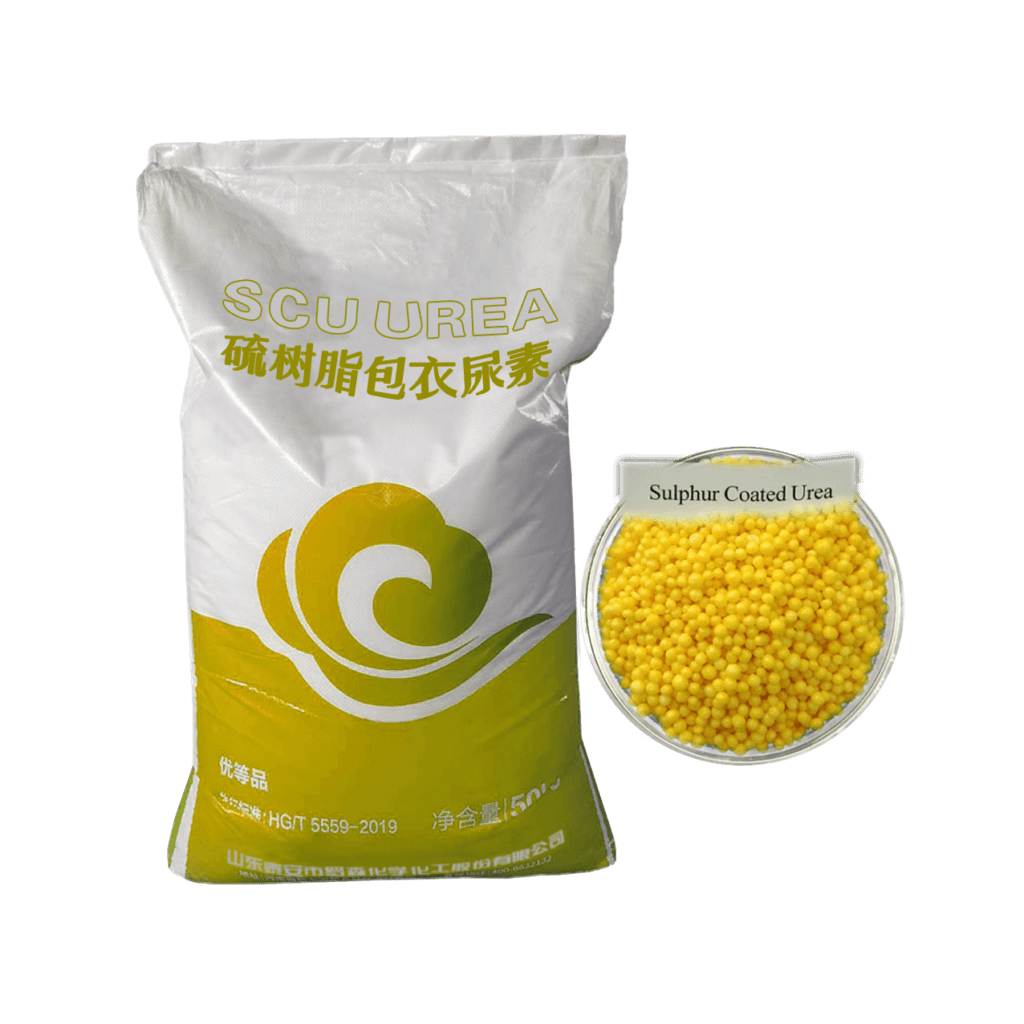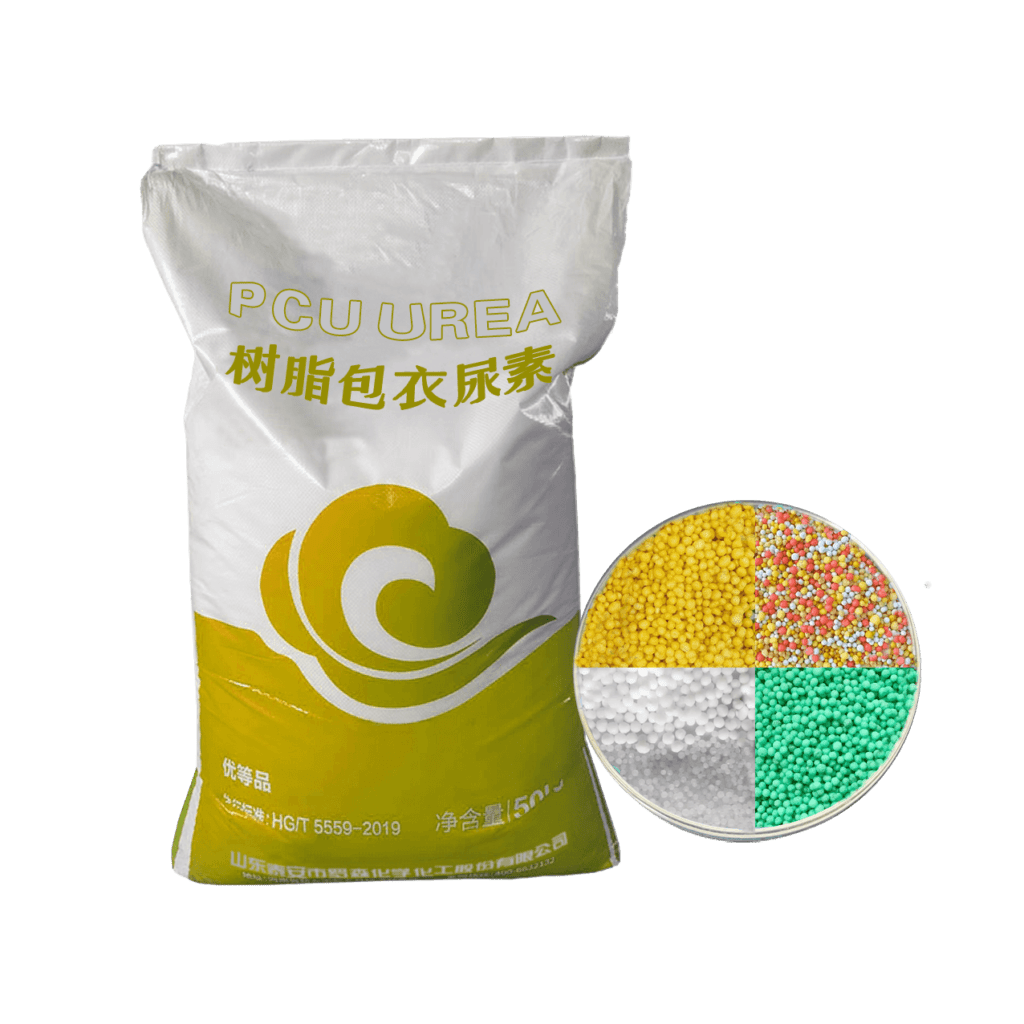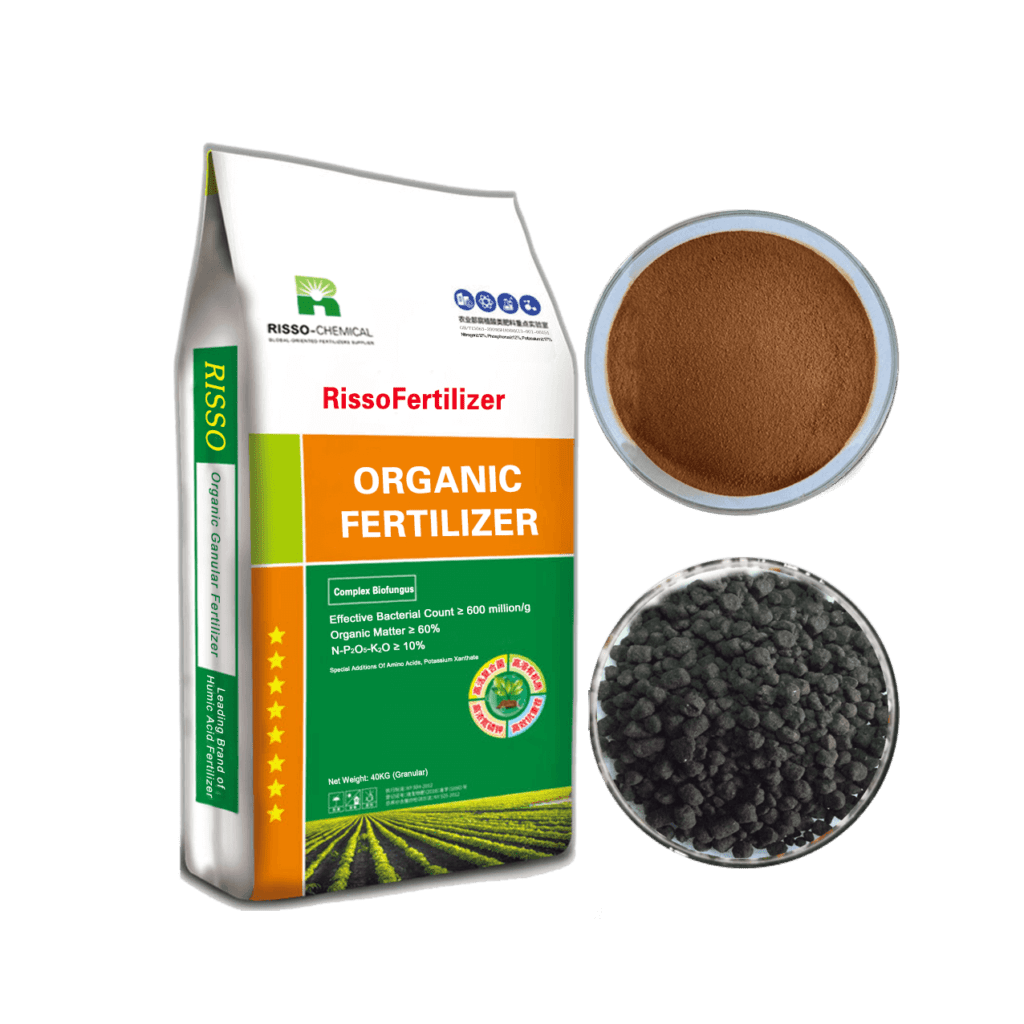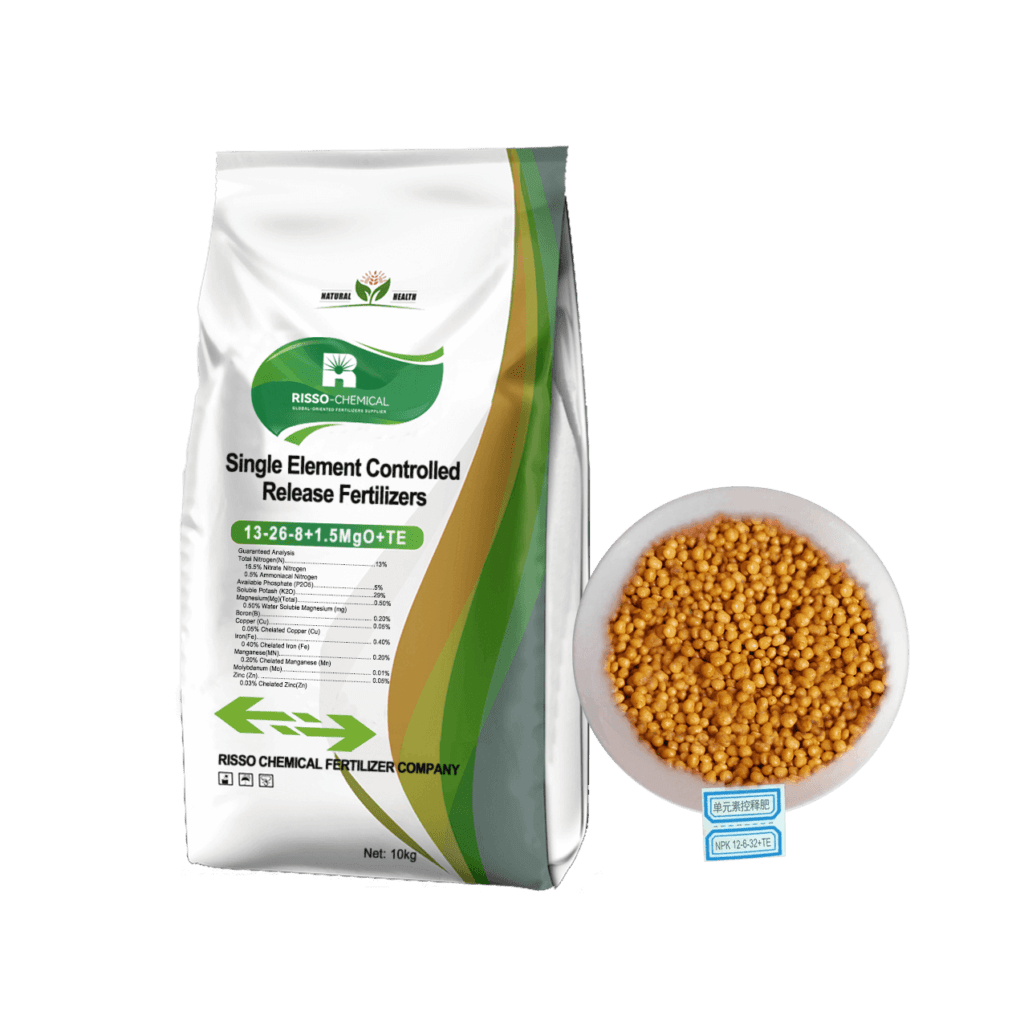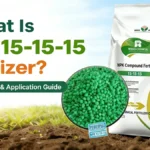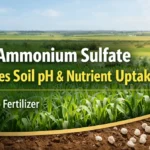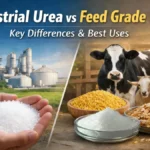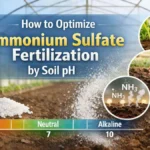Let more growers get greater benefits
How to Apply Slow-Release Fertilizer Effectively
- Industry News
- January 21, 2024
- 2:49 pm
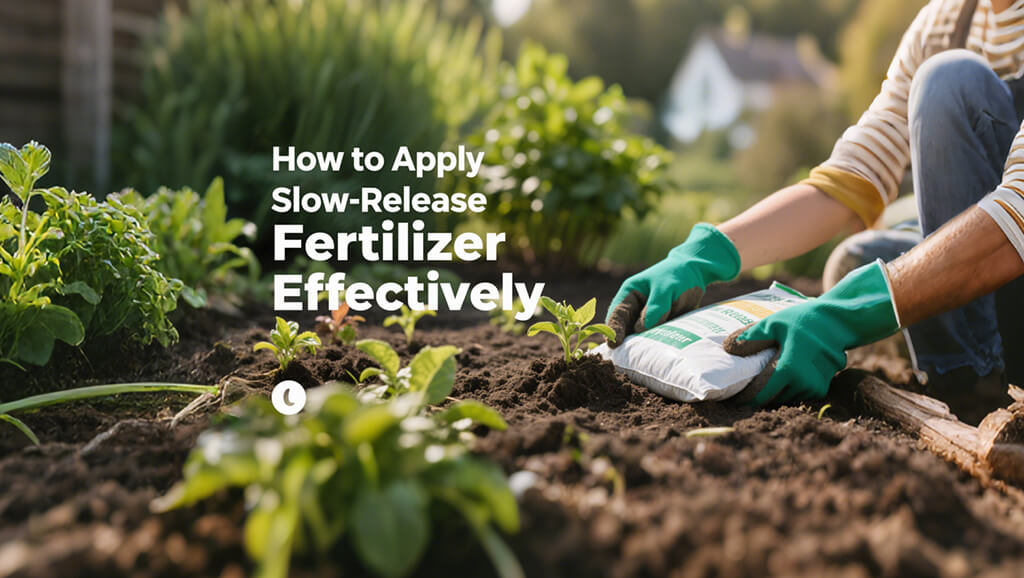

Slow-release fertilizers (SRFs) play a pivotal role in modern agriculture and home gardening. Unlike conventional quick-release products, these advanced fertilizers release nutrients gradually over time, aligning with plant uptake patterns and minimizing waste. Understanding how to use slow-release fertilizer properly is key to improving soil health, optimizing nutrient efficiency, and achieving lush, sustainable growth.
In this guide, we’ll explore best practices for applying slow-release fertilizer, highlight key application techniques, and explain why Risso Fertilizer stands out among premium SRF products on the market today.
Table of Contents
1. What Is Slow-Release Fertilizer?
A Slow-release fertilizer is a type of nutrient formulation designed to deliver essential elements like nitrogen (N), phosphorus (P), and potassium (K) over an extended period—often weeks to months—depending on environmental conditions and coating technologies.
Slow-release nutrients are encapsulated in biodegradable polymer, resin, or sulfur coatings, which degrade gradually in response to soil moisture and temperature. This controlled nutrient release mirrors natural plant demand, resulting in higher efficiency and reduced losses due to leaching or volatilization.
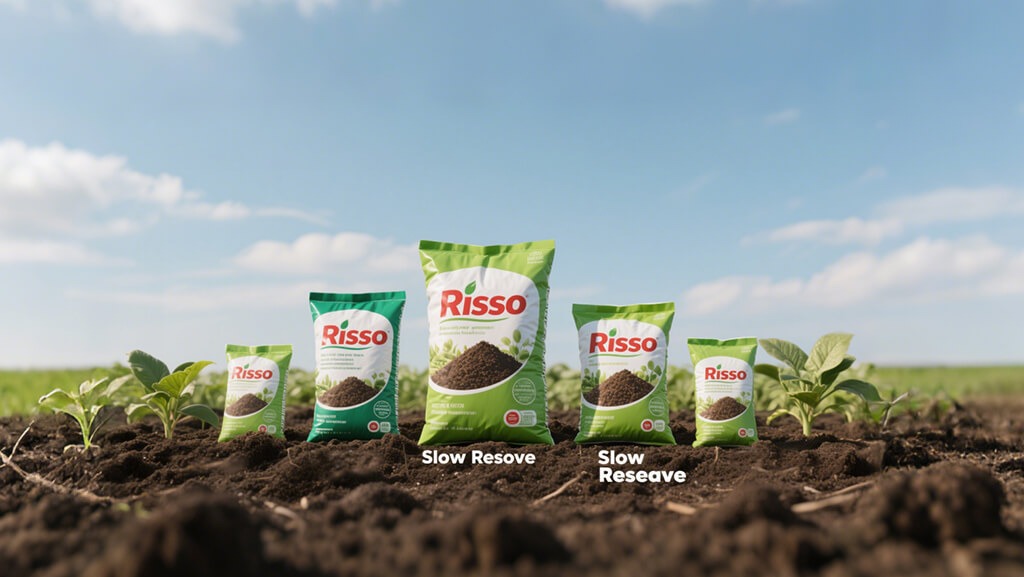

2. Types of Slow-Release Fertilizers
Understanding the various types of SRFs helps in selecting the most suitable product for your crop, soil type, and growing conditions. Below are the main types of slow-release fertilizer formulations used in agriculture and horticulture:
1. Polymer-Coated Fertilizers
These are among the most widely used slow release fertilizer. Nutrients are encapsulated in a semi-permeable polymer shell, allowing moisture to gradually dissolve and release the nutrients based on temperature and soil moisture. Ideal for lawns, golf courses, and commercial agriculture.
2. Sulfur-Coated Urea (SCU)
A classic SRF, SCU uses a sulfur layer to control nitrogen release. It is cost-effective and reduces nitrogen loss through leaching or volatilization. Some versions include a wax or polymer topcoat to improve performance.
3. Organic Slow-Release Fertilizers
These include composted manure, bone meal, feather meal, and other natural sources. Their nutrient release depends on microbial activity, making them ideal for organic farming and long-term soil health.
4. Urea-Formaldehyde Fertilizers
These are synthetic nitrogen sources formed by reacting urea with formaldehyde. Their nitrogen release is microbially driven and occurs over an extended period. This makes them excellent for turf management and perennial crops that need steady nitrogen supply.
5. Slow-Release NPK Fertilizers
Unlike traditional blended fertilizers, where each granule may contain only a single nutrient, homogenous SRF granules incorporate nitrogen, phosphorus, and potassium evenly in every particle. This ensures balanced nutrient delivery and avoids uneven feeding. Coated or chemically treated to enable gradual release, they are widely used in both commercial agriculture and premium home gardening. This type is ideal when consistent NPK availability is crucial across the entire root zone.
3. Key Benefits of Using Slow-Release Fertilizer
Using SRFs offers a host of agronomic and environmental advantages. Here are the top slow-release fertilizer benefits:
1. Improved Nutrient Efficiency
SRFs minimize nutrient losses by releasing nutrients at a consistent rate, reducing overfeeding and runoff. This leads to better root absorption and healthier plant development.
2. Reduced Fertilization Frequency
Thanks to their extended activity, slow-release products often require just one or two applications per season, saving time and labor.
3. Enhanced Root Development
Steady nutrition fosters deeper root systems, improving drought tolerance and long-term plant health.
4. Environmental Sustainability
By reducing nutrient leaching into waterways, SRFs support more eco-conscious farming and gardening practices.
5. Lower Risk of Fertilizer Burn
Because nutrient release is moderated, there’s significantly less chance of damaging sensitive roots, especially in turfgrass and ornamental plants.
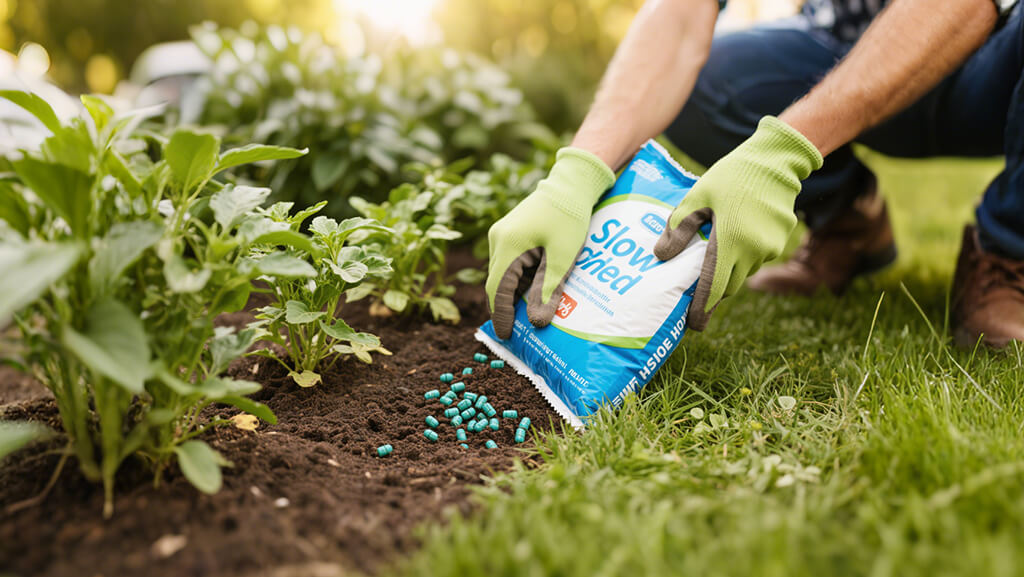

4. How to Apply Slow-Release Fertilizer Properly
Understanding how to apply slow-release fertilizer effectively ensures maximum return on investment and supports optimal plant performance.
1. Test Your Soil First
Conduct a soil analysis to determine existing nutrient levels and deficiencies. This allows you to choose the most appropriate NPK ratios and avoid overapplication.
2. Select the Right Product
Choose a slow-release fertilizer formulation tailored to your crop or landscape. For example:
For lawns: A high-nitrogen SRF (e.g., 30-5-5)
For vegetables: A balanced formula (e.g., 15-15-15)
For ornamentals or trees: A low-phosphorus blend to minimize excessive foliage growth (e.g., 20-5-5)
3. Apply at the Right Time
Timing is crucial for SRF success:
Lawns: Early spring or early fall
Vegetable gardens: Just before planting or during transplanting
Houseplants: At the beginning of the growing season
4. Use Proper Application Methods
Evenly spread granules using a broadcast spreader for large areas.
For potted plants, mix SRF granules into the top 1–2 inches of soil.
After application, water thoroughly to activate the coating and initiate nutrient release.
5. Monitor and Adjust
Observe plant responses and reapply only as needed. Re-testing the soil annually helps fine-tune nutrient inputs over time.
5. Best Slow-Release Fertilizer for Garden Useers
Choosing a high-quality product is essential. Look for formulations with proven coating technologies, high nutrient use efficiency, and compatibility with your soil type.
Why Choose Risso Fertilizer?
Risso Fertilizer is an industry-leading brand specializing in next-generation slow-release fertilizer technology. Risso’s product lines feature:
Advanced nutrient coating for controlled, consistent release
Balanced NPK ratios tailored to specific crops and environments
Environmentally safe materials that support soil health and microbial activity
Field-proven results in both agricultural and horticultural applications
Whether you’re a professional grower or a home gardener, Risso Fertilizer offers the reliability and performance you need. You can now buy slow-release fertilizer online from certified distributors or directly from the Risso website.
6. Conclusion
Learning how to use slow-release fertilizer properly is key to maximizing plant health, conserving resources, and supporting sustainable agriculture. From home gardens to commercial farms, SRFs are transforming the way we feed our plants—and our soil.
For long-lasting nutrition, ease of use, and environmental peace of mind, consider integrating Risso Fertilizer into your fertility program. It’s the smart choice for professionals who care about both performance and sustainability.
Recommended Brand: Risso® Fertilizer
- Article
What will you get when touch?
✔ Quick & helpful reply within 6 hours.
✔ Tailored solutions for your project.
✔ One-stop product, tech, market
TRENDING
Want to find a China fertilizer manufacturer?
Risso will be your best choice; send us your request for your fertilizer details requirement
TAIAN RISSO CHEMICAL FERTILIZER CO.,LTD.
- Address: High-tech Development Zone, Taian City, Shandong Province
© Copyright 2017 RISSO CHEMICAL. All Rights Reserved.



